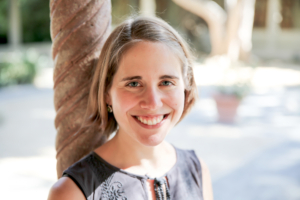
Biography
My scholarship and teaching focus on British literature of the early modern period. My forthcoming book, Poetic Priesthood, reads seventeenth-century English devotional verse as staging a surprising competition between poetry and the established church. The Reformation stimulated fierce debate among theologians and laymen about the proper nature of ministerial function, and these controversies fomented an interest in poetry as a genre that had, since antiquity, been credited with a range of “priestly” effects. Poetic Priesthood argues that John Donne, George Herbert, Richard Crashaw, John Milton, and Thomas Traherne—four of whom were also ordained—turned to poetic form to articulate a radical idea of religious devotion as distinct from, and sometimes antithetical to, the established church. This turn also demonstrates a shared perception of poetry, among these authors, as “radical” not only in its capacity to express contentious beliefs, but also in the sense that it might take root deep within individual readers. Poetic form represented an essential means of spiritual advancement, one that enabled readers and writers alike to express themselves more fully, and more creatively, than they could through the liturgical forms of the church.
The poets at the center of my research used literature to provide their readers with new ways of thinking about the familiar and everyday, but also with methods for grappling with the unknown, and their efforts inspire my own practice as a teacher. My classes focus on texts that have often exerted immense influence on the western literary canon, but that are nonetheless historically distant and that may seem profoundly unfamiliar in their formal characteristics and their social and political commitments. I encourage students to see this unfamiliarity as an invitation to read both closely and adventurously, and to take risks in thinking and writing. Whether we are studying William Shakespeare, John Donne, or Margaret Cavendish, our texts become a basis for questioning the very ways in which we read, and for developing a readerly agility that is valuable in contexts beyond the classroom too.
Academic History
- B.A. University of Cambridge
- M.A., M.Phil., Ph.D. Yale University
Academic Focus
Early modern literature (all genres, especially lyric verse); Shakespeare; Milton; poetry and poetics; book history; disciplinarity; music and literature; devotional writing
Courses Taught
- Readings in British Literature
- Shakespeare: Comedies and Histories
- Shakespeare: Tragedies and Romances
- Milton
- Early Modern Outsiders
- Rhyme and Reason in the Renaissance
Selected Research and Publications
Poetic Priesthood in the Seventeenth Century: Reformed Ministry and Radical Verse (Oxford University Press, forthcoming)
“‘Therefore is Gods will delivered to us in Psalms’: John Donne and Poetic (Re)form,” John Donne Journal 34 (2015): 125-151.
“‘In forgetting thou rememb’rest right’: Metaphor and Mis-devotion in John Donne’s Songs and Sonnets,” Christianity and Literature 68.3 (2019): 435-453.
“‘A World of Her own Invention’: The Realm of Fancy in Margaret Cavendish’s The Description of a New World, Called the Blazing World,” Journal for Early Modern Cultural Studies 16.1 (2016):123-45
“Unimportant Women: The ‘Sweet Descants’ of Mary Sidney and Richard Crashaw,” Gender and Song in Early Modern England (Ashgate: Farnham, 2014), 107-122.

